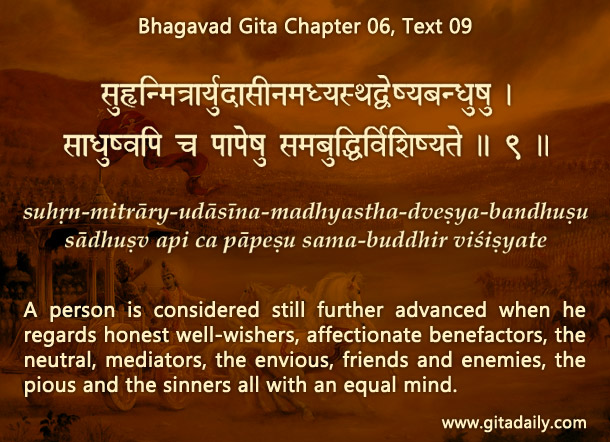When we feel that someone has wronged us, our mind often overreacts, painting them as mean and malevolent.
However, in most routine interactions, people don’t usually intend to hurt us. Somehow, they do some things wrong; we get some things wrong; and some things just go wrong. Seeing such wrongs wrongly, our mind depicts them as villains and ourselves as victims.
Being deluded by the mind, we approach those people with an accusatory, belligerent attitude. Even if we talk with them, we don’t actually talk with them; we talk with our mind’s depiction of them. When they see us ascribing base motives to them without properly hearing their side of the story, they feel irritated, even offended, thereby worsening the situation.
Before dealing with those people, we need to first deal with the mind. Rather than believing the mind’s depiction, we can calm ourselves and perceive things objectively. Such calmness comes more easily when we internalize a spiritual worldview.
The Bhagavad-gita explains that we as souls are indestructible, and that Krishna, the supreme controller is always our well-wisher. If he from within someone’s heart has allowed them to act in a particular way, he must have some purpose. If we connect with him in our own heart, he grants us calmness and clarity. Thereby, we retain our equanimity amidst diverse events (06.07), objects (06.08) and people (06.09).
Of course, we needn’t naively imagine that everyone is benevolent. The Gita (06.09) acknowledges that different people are differently disposed – some as friends, some as enemies, some as mediators. Nonetheless, we focus not on others’ dispositions, but on our intentions, on how we can best serve Krishna through our interactions with them.
Such an enlightened service attitude disempowers our paranoid mind and empowers us to respond maturely.
To know more about this verse, please click on the image
Explanation of article:
Podcast:

